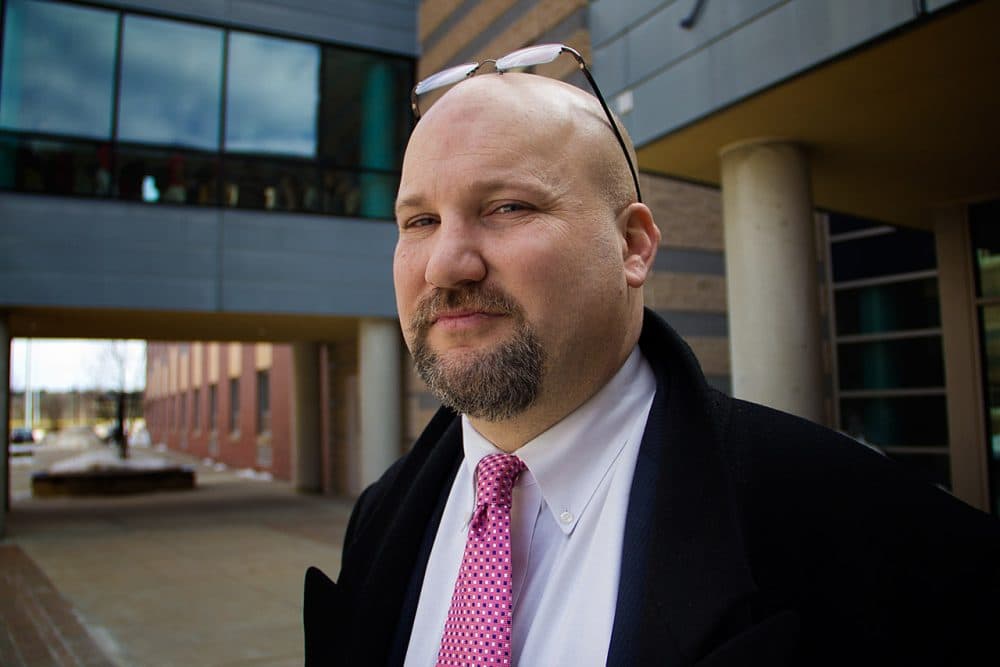Advertisement
Coronavirus Coverage
Education Commissioner's Aim: Have Mass. Schools 'Up And Running' In Fall

State education officials intend to provide school districts with guidance on summer programming early next week, followed by a mid-June distribution of draft fall guidance to help schools plan to reopen in the new academic year.
"I want to be clear, we are working to have schools up and running in the fall, with appropriate safety protocols," commissioner Jeff Riley said during a Board of Elementary and Secondary Education meeting Tuesday. "Moreover, we hope to have some summer programming as well, but as with all, we will await the guidance from the administration on the timeline and the phases and when things are available."
Schools across Massachusetts were shuttered in mid-March as the state prepared for a surge in COVID-19 cases, forcing teachers, students and their families to abruptly transition into a new, at-home learning model.
Under an order from Gov. Charlie Baker, K-12 schools will remain closed for the rest of this academic year. Education Secretary James Peyser told lawmakers earlier this month that there is "no question" remote learning will be a large part of planning for the new school year and said that even if students return to classrooms in a "quasi-normal fashion," officials need to "be better prepared for the possibility that in-person education will be interrupted again."
With the state now in the first phase of the Baker administration's four-stage reopening plan, Riley has convened his own working group to help develop a reentry plan for Massachusetts schools.
The group held its first meeting on May 7, Riley wrote in a message to school districts, and its initial focus will be on what summer programming might be possible.
The members come from organizations representing school counselors, police and fire chiefs, charter schools, educational collaboratives, school committee members, school administrators, school nurses and facilities administrators, as well as from the Department of Public Health, the Massachusetts Emergency Management Agency, the School Building Authority, the state's two main teachers unions, the Massachusetts Parent Teachers Association, and the Student Advisory Council.
Riley said the group feels "a sense of urgency" in its work, aware that districts need to know what to plan for, but wants to balance that with "making sure that stakeholders have a chance to weigh in on our plan."
"We recognize that maybe not everyone's going to be happy, but we think we'll do better by making sure that everyone is involved in the process," he said.
According to Riley's May 14 message to school leaders, the working group "will help develop a K-12 summer and fall restart and recovery plan" that will include guidance on teaching and learning; physical and virtual learning environments; operations and business services; and behavioral health and social and emotional learning.
In addition to uncertainty around what a fall term will look like, local school districts and municipal governments are still facing an unknown budget picture. The pandemic upended the traditional Beacon Hill budget cycle, and economists have projected that state revenue collections for the fiscal year that begins July 1 will be billions of dollars below original projections.
Without knowing what they are likely to receive in state aid, it's difficult for municipalities to set their own budgets, said Bill Bell, the education department's senior associate commissioner for administration and finance. Bell said he did not have any "magic answers" for the board on the state budget picture.
Riley said budget writers on Beacon Hill are still trying to figure out how much revenue will be coming in.
"Obviously we'd like to see some directionality about local aid sooner rather than later to help schools plan, and to prevent major disruption over the summer, but I think people are still trying to make the picture a little less fuzzy," he said.
The budget Baker filed in January included a $304 million increase in Chapter 70 state aid to local schools, reflecting a November 2019 law that called for a $1.5 billion in new K-12 education funding over seven years.
Bell said he does not know if that level of aid will end up being "sustainable" in the fiscal 2021 budget, but that he believes "it's everyone's desire to try to get to that level."